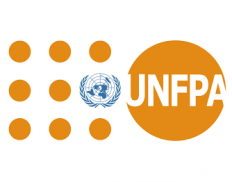Share
Print

The United Nations Population Fund is the UN agency which leads global efforts to help ensure that every pregnancy is wanted, every birth is safe, and every young person's potential is fulfilled.
UNFPA is mandated by the International Conference on Population and Development (ICPD), held in Cairo in 1994, to support universal primary education, reduce infant and child mortality, reduce maternal mortality, and increase access to reproductive health services including family planning. The Cairo Consensus placed these population and development issues within a human rights based framework, and UNFPA is committed to integrating human rights into its work globally.
UNFPA in Afghanistan
UNFPA first began working in Afghanistan in 1976. As Afghanistan entered into many decades of conflict, UNFPA adapted its services to assist and support Afghans both inside and outside the country, providing reproductive health services to the vast refugee populations in Pakistan and Iran.
In 2002, after the fall of the Taliban, UNFPA re-established its Country Office in Afghanistan and developed a new programme of long-term support for women and young people, starting with the rehabilitation of three maternity hospitals in Kabul.
During the First Country Programme (2004-2006), UNFPA helped build technical capacity in the recently formed Ministries of Public Health and Women's Affairs, and helped develop national strategies and implement programmes to promote reproductive health.
The Second Country Programme (2007-2009) built on the successes of the first as a national Reproductive Health and Family Planning strategy was developed, and a plan was put in place to ensure that modern contraceptives were available to those who needed them.
In 2010, UNFPA launched its Third Country Programme (2010-2014). During this period, UNFPA promoted the utilization of information and services on reproductive health, including family planning. It fostered an environment in which gender-based violence can be eliminated and helped young people in adopting healthy lifestyles. UNFPA supported the collection and use of accurate socioeconomic data so that development decisions might be taken on the basis of robust evidence.
